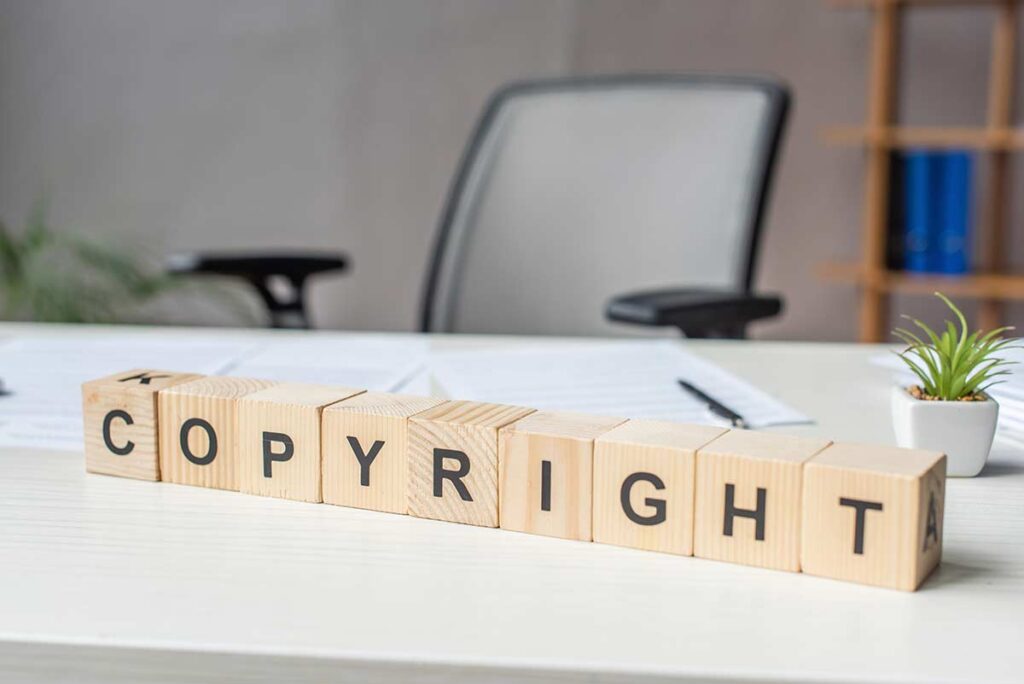Derivative Work and Copyright
Understanding copyright means also understanding what does and does not receive copyright protection.
Copyright protects original work that includes creations that fall into the following categories:
- Fiction and non-fiction literary work
- Sound recordings
- Musical work, scores, and lyrics
- Plays
- Movies, television shows
- Visual art, like paintings, sculptures, drawings, and
- Photographs
Copyright also protects derivative work. What does that mean? It means that if you own the copyright to something, you also own the copyright to work that derives from it.
What is Derivative Work?
Derivative work is based on work that already exists. The U.S. Copyright Act of 1976, 17 U.S.C. Section 101 defines work that’s derivative as:
Examples of derivative work often include:
- A new musical arrangement
- The adaptation of a book (into a play, movie, or screenplay)
- A revised, updated, or new edition of a book
- A translation of a book
- A book sequel
- A movie sequel
According to copyright, derivative work must have substantial new material and be creative and original in its own right.
Copyright Infringement of Derivative Works
Derivative work is protected under the same copyright as the original. This means that the person holding the copyright to the original also owns the rights to the derivative work.
If someone creates derivative work without permission or a license, the copyright owner of the original work can bring a copyright infringement lawsuit against that party.
Once copyright expires, it is free for public use. When this occurs, if someone modifies the work or makes something derivative, that work is entitled to copyright protection. This means anyone can use the original (expired) work but not your modified/derivative version.
Does “Top Gun: Maverick” Violate Copyright?
In May 2021, Paramount released the blockbuster hit movie “Top Gun: Maverick,” two years after pandemic delays. “Top Gun: Maverick” is the sequel to the 1986 hit “Top Gun.” The original film was inspired by a news article written by Ehud Yonay, who has since passed away. Paramount received the rights to the story in 1983.
According to an Entertainment Weekly article, the family of Yonay claims that the copyright to the story reverted back to them under copyright law in January 2020. There is a section of copyright law that allows a party to terminate copyright after 35 years. The family of Yonay executed this provision.
The lawsuit alleges that Paramount was legally obligated and failed to re-acquire its right to the story before creating the “derivative” sequel.
The studio claims that the movie was “sufficiently” complete before the expiration of the copyright, which was January 24, 2020. Paramount also claims that the Top Gun: Maverick is not derivative of the original article.
The court will consider several things in deciding this copyright case. Is the sequel derivative of the original article? Are there sufficient similarities between the original article and the new movie? Does it matter if the film was “substantially completed” before the rights expired? Did Paramount ignore the termination of rights notice?
Yonay’s family wants the court to grant an injunction stopping the film’s distribution. The complaint also asks for profits from the hit sequel.
We will have to wait and see how this case gets resolved.
Call U.S. Copyright Attorneys at Sanders Law Group For Copyright Assistance
Our copyright lawyers at Sanders Law Group work hard for creative artists around the globe. We want to ensure that your rights and business are protected to the maximum extent possible. When someone violates your copyright by creating a derivative work without permission, we want you to receive the most compensation allowed by law.
Call us today at (800) 979-3707 to schedule a free copyright infringement consultation.



